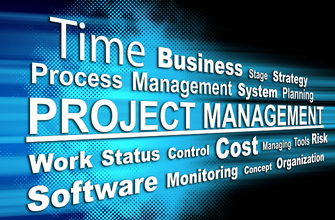167 500 HUF + VAT (440 EUR + VAT)
Java Programming Basics Course - Dates and application
First training day: 6 October 2025, Further training days: 7., 8., 9., 10.
167 500 HUF + VAT (440 EUR + VAT)
First training day: 8 December 2025, Further training days: 9., 10., 11., 12.
167 500 HUF + VAT (440 EUR + VAT)
Applying for closed-group training
Application without a date
This course introduces students to the Java programming language. They will learn the basic elements of the language and object-oriented programming methodology through practical examples.
For beginners with basic programming skills and experienced developers without Java knowledge.
If you do not have any programming skills yet, we recommend our Programming Basics Course as a first step.
Knowledge of programming basics (recommended).
If you do not have any programming knowledge, we recommend our Programming Basics course (MFEPROG1) as a first step.
Java is one of the most popular and versatile programming languages today. It has a wide range of applications: web development, application servers, mobile devices, etc. The aim of this course is for students with basic programming skills to become familiar with the Java language and to enable them to gain experience in developing applications with confidence. The training provides students with the opportunity to learn the free Eclipse IDE or, alternatively, the IntelliJ IDEA development tool.

Course Outline:
1. THE BASICS OF THE JAVA LANGUAGE
1.1 Java as a platform; versions
1.2 The system and its installation
1.3 Java as a programming language
1.4 Source code, bytecode, machine (native) code
1.5 Syntax, keywords
1.6 Primitive (simple) types
1.7 Conversion of primitive types (cast)
1.8 Declaration, initialisation
1.9 String operations, formatting
1.10 Operators (operations)
1.11 Statements
1.12 Blocks
1.13 Control structures
2. JAVA DEVELOPER TOOL
2.1 Features
2.2 Views, perspectives, creating your own perspective
2.3 Hot keys, shortcuts
2.4 Using the static analysis tool
2.5 Compiling and running codes
2.6 Debugging
2.7 JavaDoc overview
3. OBJECT-ORIENTED ARCHITECTURE OF JAVA
3.1 Complex types (class)
3.2 Methods, constructors (overloading)
3.3 Class, object and local variables
3.4 Object lifecycle
3.5 Difference between primitive variables and objects
3.6 Wrapper classes (Boolean, Integer, etc.)
3.7 Data encapsulation, hiding (private, public, empty, protected, getter, setter)
3.8 Packages, importing
3.9 Inheritance (override, overload)
3.10 Polymorphism
3.11 Abstract classes (abstract)
3.12 Interface
4. EXCEPTION HANDLING IN JAVA (EXCEPTION)
4.1 Compilation, run-time error
4.2 Basic classes of exception handling (Throwable, Error, Exception)
4.3 Throwing an exception
4.4 Defining an exception handling block (try-catch)
4.5 Specifying exceptions (throws)
4.6 Most common exception types (NullPointerException, ClassCastException, ArithmeticException, ArrayIndexOutOfBoundsException)
5. JAVA CLASS LIBRARIES
5.1 Class hierarchy (Java API)
5.2 The Object class
5.3 The base library (java.lang)
5.4 Complex data types (Collection API, Map, List)
5.5 Using the console: inputting and outputting data
5.6 Random class
5.7 Math class
6. BASICS OF DATABASE MANAGEMENT
6.1 Java Database Connectivity (JDBC)
6.2 Driver setup
6.3 Database creation
6.4 SQL queries and statements
7. GRAPHICAL USER INTERFACE (GUI)
7.1 AWT vs SWING
7.2 Basic graphic components
7.3 Look & feel
7.4 MVC (Model - View - Control)
7.5 Event management
Our Oracle trainings are based on the curriculum developed by Masterfield.
Trainers
Do you have any questions about the training?



























Nagyon köszönöm a sok átadott tudást.
Szabóné Holyba Judit
CIB Bank